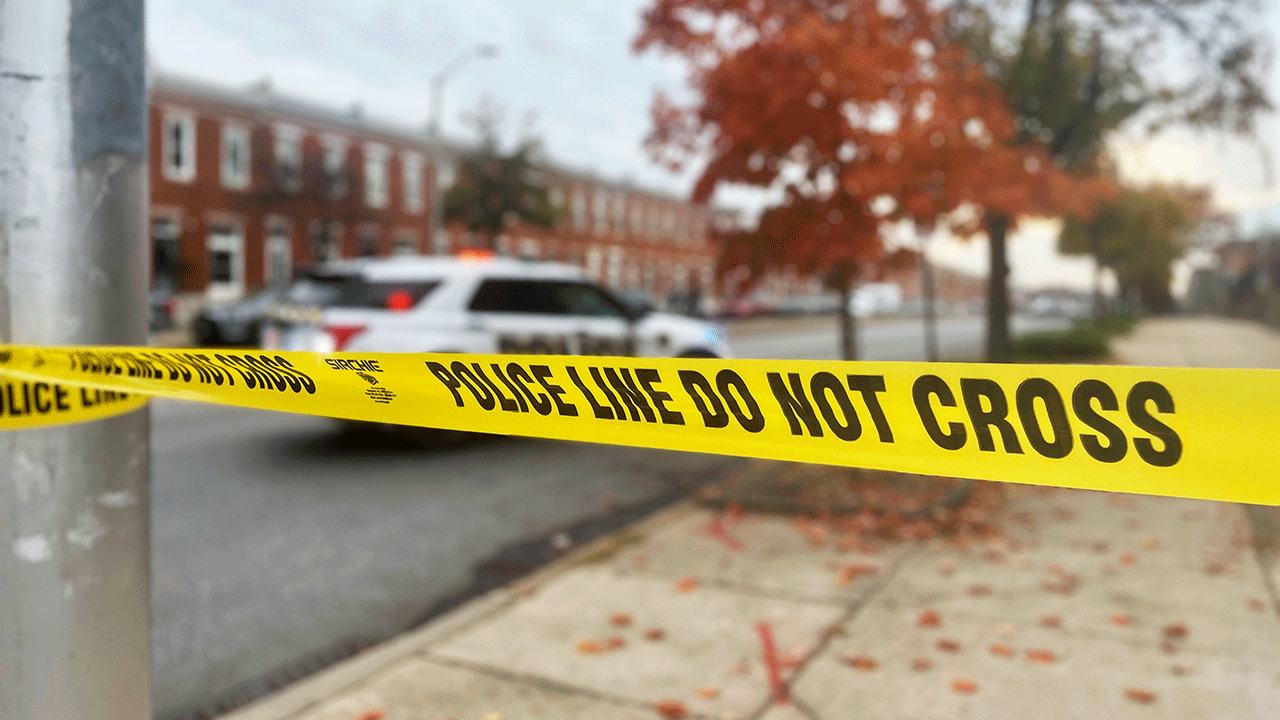Fox News Flash top headlines for November 8
Fox News Flash top headlines are here. Check out what's clicking on Foxnews.com.
Baltimore police officers shot and killed a man who pointed a gun at them following a foot pursuit Tuesday afternoon, officials said.
Police Commissioner Richard Worley said officers were patrolling an area in southwest Baltimore known for frequent gun violence when they encountered a man who they believed to be armed.
Officers tried to stop the man and he fled, Worley said. He said that during the chase, the man drew a weapon and an officer tried to tackle him. Officers opened fire when the man pointed his gun at them, Worley said.
SHOOTING IN BALTIMORE LEAVES DOZENS WOUNDED, MULTIPLE DEAD: POLICE

Crime scene tape sections off the scene of a shooting on Nov. 7, 2023, in southwest Baltimore, where police shot a man they said pointed a gun at officers. An officer suffered minor injuries while the man was later pronounced dead at a hospital. (AP Photo/Lea Skene)
One officer received minor injuries. Officials initially thought the officer had been shot because he had blood on his pants, but they later determined that wasn’t the case, Worley said.
Officials haven’t determined how many officers pulled the trigger. They also haven’t determined whether the armed man fired his handgun.
The man was pronounced dead at a hospital, Worley said. His identity hasn’t been released.
The officers involved are members of a so-called District Action Team, one of the Baltimore Police Department’s specialized units that focuses on proactive patrols and other measures in areas of Baltimore most plagued by violence. While they don’t wear traditional uniforms, their vests clearly identify them as police, Worley said.
The teams drew scrutiny earlier this year after a police shooting that unfolded under similar circumstances and left a teen in critical condition — less than a mile from the scene of Tuesday’s shooting. In that case, too, officers tried to stop the teenager because they believed he was carrying a gun. He ran away, holding a gun in one hand, and an officer shot him from behind.
In this case as in the previous shooting, Worley defended the officers’ actions. He said they were conducting "proactive patrols" aimed at preventing violence. He also said they yelled at the man multiple times to drop his weapon before opening fire.
"This is another example of our officers doing a great job of apprehending an individual who was armed," Worley said during a news conference at the scene. "We don’t know what he was up to with that weapon."
Department policy says officers are allowed to use deadly force when they believe it’s "immediately necessary" to protect another officer or civilian from "imminent danger of death or serious physical injury." In the case of a fleeing suspect, officers can use deadly force to prevent the person from escaping under certain circumstances.
"While we are very early in this investigation, we know that incidents like this really pull the heart out of the community," said Baltimore Mayor Brandon Scott, thanking city police officers for what they do.
BALTIMORE POLICE RELEASE VIDEO OF PERSONS OF INTEREST IN MORGAN STATE UNIVERSITY SHOOTING
But praise for the city’s police department has been hard to come by in recent years. The agency has implemented significant reform measures under a federal consent decree established in 2017 that mandates a series of court-ordered changes to eliminate unconstitutional policing practices and improve community trust. The agreement was reached after the U.S. Justice Department discovered longstanding patterns of excessive force, unlawful arrests and discriminatory policing.
The DOJ investigation was launched after Freddie Gray’s 2015 death from spinal injuries in Baltimore police custody. Not long after the consent decree was announced, the Gun Trace Task Force scandal revealed abuse and corruption inside an elite plainclothes unit.
An assessment earlier this year found officers are significantly less likely to use force against members of the public than they were before the consent decree was put in place.









































